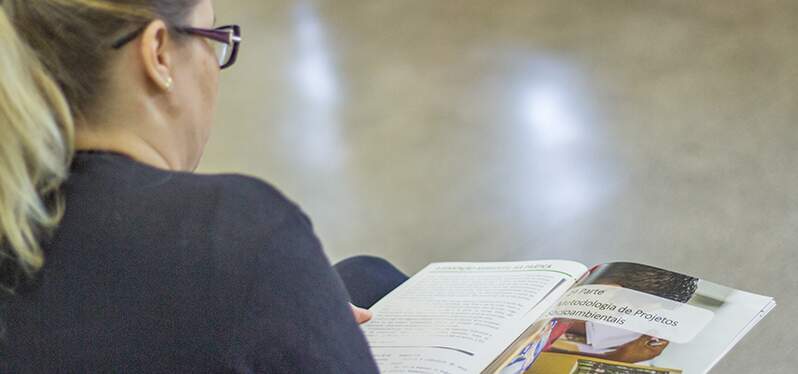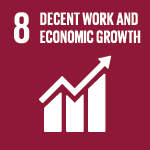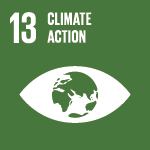Posted in: 12/09/2021
Social responsibility regarding the environmental crisis has been growing in the last decades, which necessarily includes new postures at the individual and collective level; at the governmental level, corporate, and organized civil society levels.
Moreover, also from the legal point of view, some laws and instruments have been regulated aiming to minimize, mitigate, or even solve problems that, as a result of unbridled economic development, lead to social and environmental damage.
In Brazil, “the right to an ecologically balanced environment” is guaranteed by the Constitution (Article 225). Thus, it is up to the government to promote actions such as the requirement of environmental studies prior to the installation of works or activities with potential damage to the environment (EIA). This is where Environmental Education (EE) appears aligned with environmental preservation awareness.
Then, the construction, installation or operation of enterprises that potentially degrade the environment can only be carried out after a licensing process that guarantees the minimization of possible damage.
This licensing includes a series of conditions, including proposals to reduce/mitigate impacts and environmental compensation that the entrepreneur must submit to the environmental agency for approval.
EA is considered by Brazilian legislation (Law no. 9.795)to be “an indispensable instrument for integrated development in a sustainable society. In the context of scenarios where there are environments impacted by the installation/operation of large enterprises, EA constitutes “a tool for strengthening citizenship in favor of preserving and restoring the environment and improving the quality of life of affected or involved communities“.
Specifically, in the licensing processes – in the stages of Installation License(LI) and Operation License (LO) – the role of EA is essential to drive participatory citizenship through Environmental Education Programs, whether they are directed to the internal or external public.
The 1990s were very important for the insertion of Environmental Education in the licensing processes.
With the creation of the Programa Nacional de Educação Ambiental (National Program for Environmental Education) (PRONEA) in 1994, it came to be seen as a key piece in the “public environmental management“, even though it only came into force in 2005.blica“, even though it only came into force in 2005 when reflecting on the role of Environmental Education in the process of empowering social groups.
In this context, EA was divided into two fronts, “formal” and “non-formal“, with IBAMA being responsible for defining the guidelines of the latter.
Returning to the context of licensing, Article 3 of the aforementioned law establishes the promotion of EA by public or private companies, aimed at enabling programs, focused on the training of workers, aiming at improving and controlling the work environment, and repercussions of the production process on the environment and also on the community involved (BRASIL, 1999, p.1-2).
From this argumentation, one can see the importance of promoting environmental education in companies, as a way to awaken with their employees and all those around them, educational actions that seek to raise awareness about their responsibilities to the environment. It is important to note the importance of promoting environmental education in companies as a way to raise awareness about their responsibilities towards the environment.

Environmental Education then becomes “a public policy” that translates into “Education for environmental management“, promoting the development of skills, knowledge, and attitudes, both individual and collective, that are significant “in the management of the use of natural resources“.
Environmental licensing becomes, therefore, a State environmental management instrument, including all its stages: studies, programs, and public hearings – spaces in which citizen participation is expected.
When an environmental agency decides whether or not to license an enterprise, it is taking sides and defining who wins or loses with such action. In the business environment, it is up to the organizations to develop actions in a permanent educational process and invest in environmental education processes.
Environmental Education, in this context, should encourage the creation of learning environments and offer conditions so that not only employees and collaborators of these companies, but also the surrounding communities develop skills to create innovative alternatives for sustainable use of the environment. (ADAMS, 2005 apud XAVIER e cols: 2012, p. 16)1.
The insertion of EE in companies aiming at building sustainability culminates with the training of employees, providing environmental awareness and professional competence, constituting a comprehensive educational and management practice.
These practices will permeate both the participation of society in discussions about environmental issues, as well as changes in attitudes and values for the transformation of the reality of environmental degradation (JARDIM, 2009 apud XAVIER et al: 2012, p. 17-18).
However, as we know, law is law. And complying with it does not necessarily mean promoting processes to raise awareness, or even the creation of spaces to promote participation and dialogue.
On the part of the companies, there is often no openness, and not even interest, in going deeper into the educational processes, since there is fear or fear of being criticized, questioned, or demanded by the communities.
In this context, Environmental Education becomes a mere superficial sensitization focused on punctual events, without continuity, and whose choice of approached themes focus much more on global issues (global warming, water shortage, and recycling) than on approaches about local problems, avoiding the environmental conflict experienced.
Moreover, in promoting debate about how to tackle the problems, the solution usually falls under individual responsibility. This generates an illusion about people’s autonomy in relation to social transformation, avoiding the need for an education aimed at developing values and capacities to make them capable of making decisions in face of the impasses generated by the current production model.
Loureiro (2009, p.6) states that there is a disarticulation between the environmental education programs in the licensing context and the reality of the communities involved in the process of environmental, social, cultural, and historical transformation caused by the installation of the licensed enterprise.
For the author, there are two arguments that justify this. The first would be based on the idea that there is “the execution of courses and events without a prior knowledge and diagnosis of the dynamics of the territory, the conflicts, and the existing forms of social organization“.
He also complements with his opinion about the great absence that causes disarticulation in the process, since “the contents are structured without considering this information and the dialogue with those who are the subject of the educational process.“.
Therefore, the importance of a Participative Socio-environmental Diagnosis to adapt the Environmental Education Program to the reality of the transformation generated by the undertaking.

EA does not occur in the preliminary licensing stage, but only in the installation stage, when citizen participation is restricted in the decision-making processes already underway. As we can see, there is still much to be discussed about Environmental Education within the licensing scope.
Still, we can conceive EA in Environmental Licensing as a process of mediation between the interests of the subjects that live in the territory where the companies and their operations are installed.
This mediation process defines and redefines, continuously, how the different subjects, through their practices, change the quality of the environment, and also how the costs and benefits resulting from the actions of these agents are distributed.
We understand, for example, that the confrontation of the current environmental crisis is inscribed in the overcoming of the production and consumption mode – which is configured as the maintenance of the established market order and not as a simple agenda of consumption reduction without contextualization of production as the media disseminates.
Still, it is possible to highlight relevant initiatives undertaken by companies and society to transform significant actions into positive impacts for society. This is what we need to focus on and place our expectations for the future of Environmental Education.
*Synergia has a Nucleus of Educators dedicated especially to the themes of Social and Environmental Education, always attentive to the development of new methods and approaches that bring knowledge and effective learning to our territories of operation. The Center’s staff prepared this article seeking to clarify for our readers the context and relevance of Environmental Education in contemporary society.
The article “Licensing, non-formal Environmental Education, and the role of companies” is the second in a series of three texts produced by the Center.
Check out the first article published:“Educação Ambiental e desafios contemporâneos (Environmental Education and contemporary challenges)”.
The last article of the series on Social and Environmental Education:Pedagogical practices of Environmental Education and the methodological political context



Sign up and receive our news.